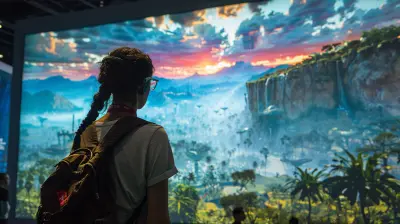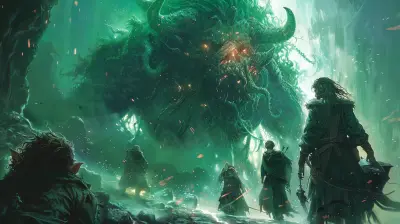Why Non-Human Characters in RPGs Can Offer New Perspectives
17 March 2025
If you’re a fan of RPGs (role-playing games), chances are you’ve wielded swords, cast spells, and traversed imaginary worlds brimming with adventure. But let me ask you this—how often do you play as someone, or something, that isn’t human? Sure, you’ve probably rolled up an elf or a dwarf in your favorite tabletop RPG or video game. But what about stepping even further outside humanity? Playing as a sentient tree? An alien with a hive mind? Maybe a mischievous talking cat?
It might sound like a quirky gimmick at first, but taking on non-human characters can genuinely shift the way you see the game (and maybe even the world). Let’s dive into why playing as something not quite human in RPGs can offer fresh perspectives that you wouldn’t get otherwise. 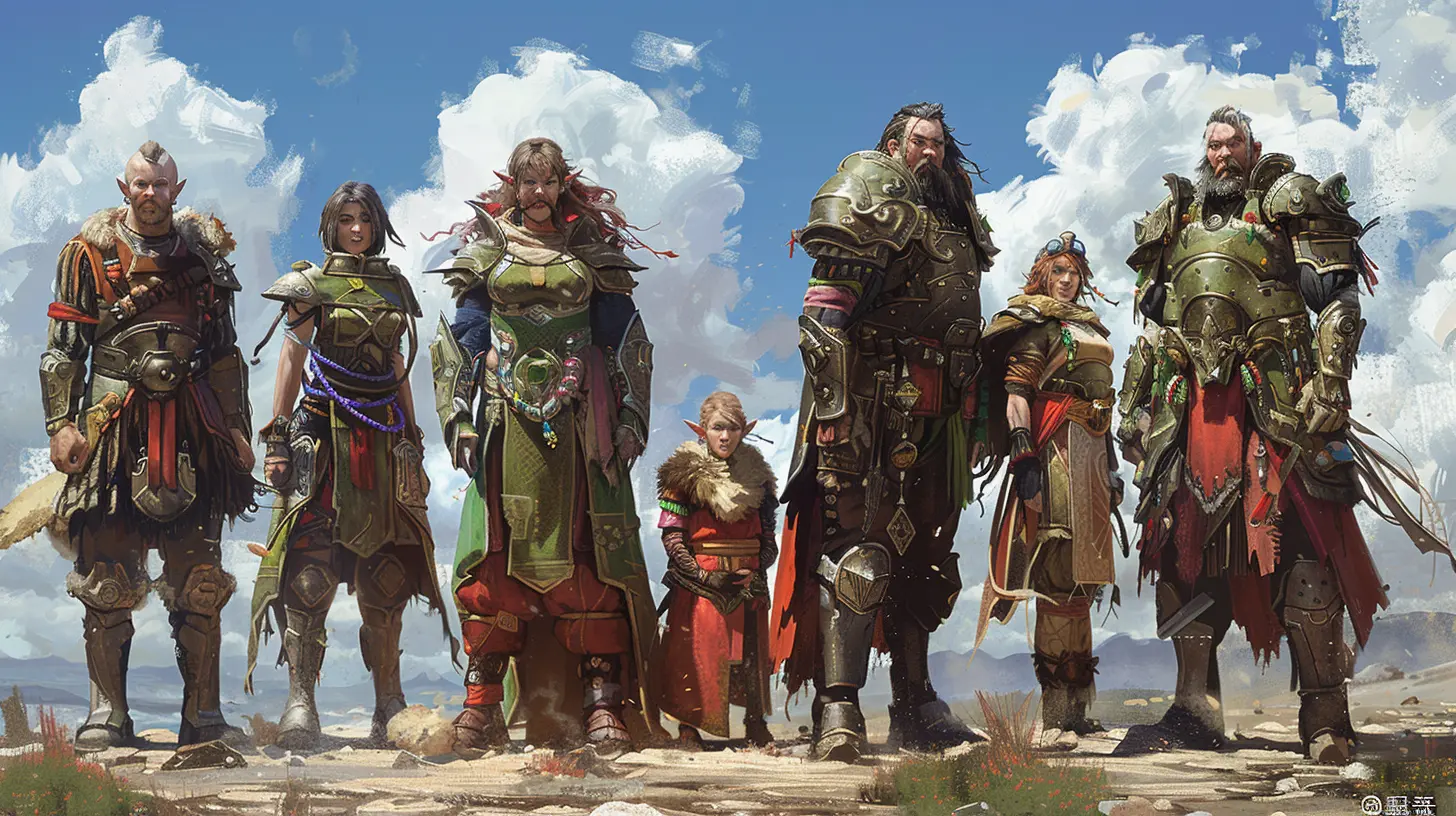
Breaking Free from Human Limitations
Let’s face it: being human comes with a lot of baggage. We’re bound by biology, culture, emotions, and all kinds of quirks that dictate how we act and think. When you play an RPG, you’re often mirroring those same tendencies in your characters—even if they’re technically a wizard or an archer. But when you step into the shoes (or tentacles) of a non-human creature, you’re cutting those strings.For example, what’s it like to see the world as a literal stone golem? Do you even care about time, beauty, or morality in the same way? Probably not. Non-human characters break conventions and force you to reconsider what’s important. In the process, you might start understanding different ways of processing the game's problems—and rethinking real-life ones, too.
By shaking off those human filters, you get a chance to think more creatively. You’re no longer tethered to traditional motivations like greed or revenge. Maybe your character is an ancient tree, and your only goal is to protect the forest because you’ve been rooted there for centuries. A desire to expand? Nope. A lust for riches? Definitely not. These kinds of shifts encourage you to explore storylines in ways that wouldn’t cross your mind if you were playing a human knight or rogue. 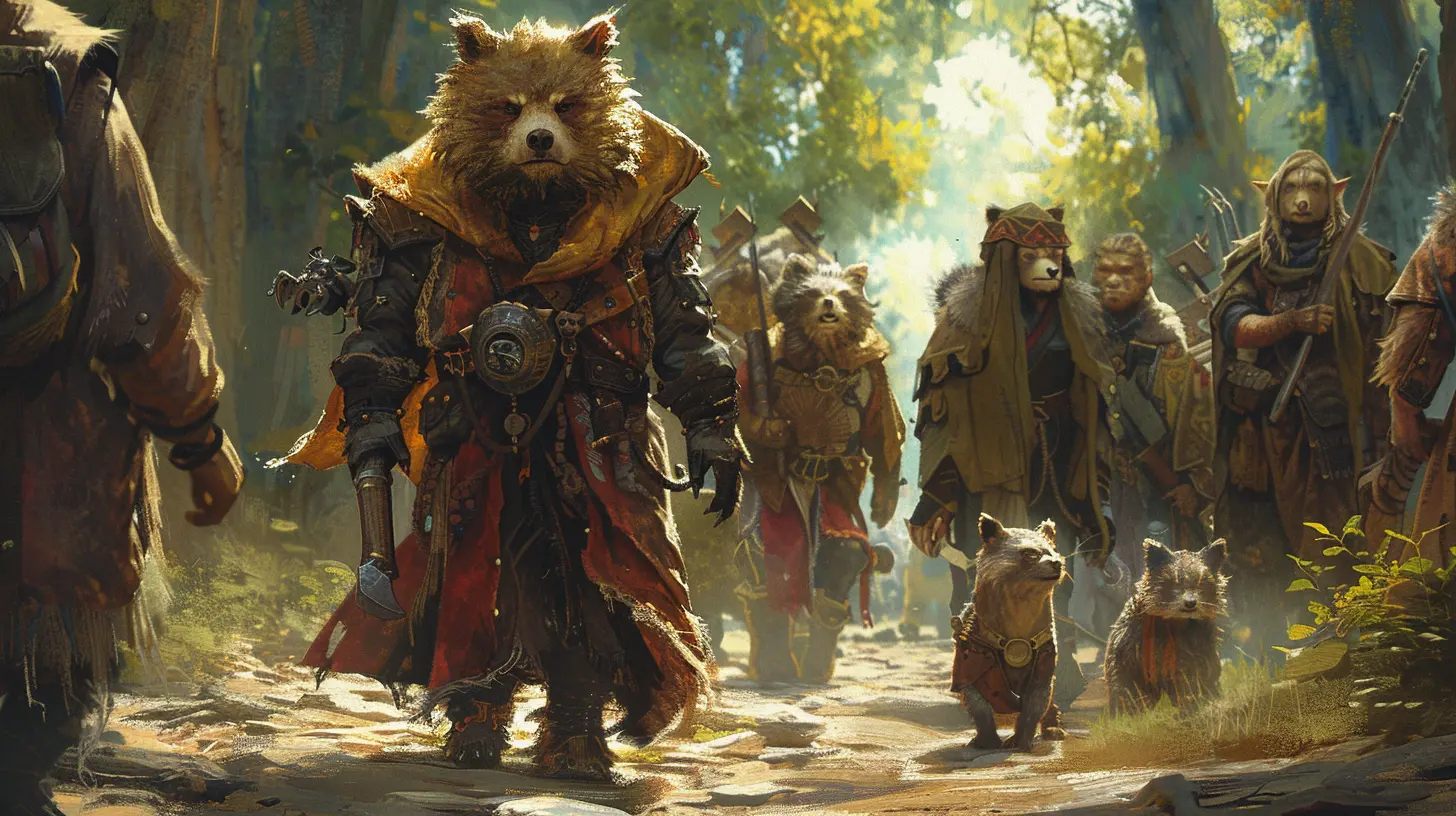
Empathy Through the Alien Lens
Have you ever wondered what it’s like to be something completely different? Playing as a non-human character gives you the ultimate opportunity to build empathy through difference. It’s like walking a mile in someone else’s shoes—except those shoes might be eight-legged or bio-mechanical.RPGs thrive on the idea of escapism, but they also let us explore what we don’t know about ourselves and others. When the game puts you in the role of a sentient slime or a robot designed to serve humans, you’re suddenly grappling with questions that don’t apply to your own life. What is free will? What does identity mean if you can shapeshift? What would happen if survival required you to absorb other beings into yourself?
By playing through these perspectives, you open yourself up to ideas about diversity, acceptance, and understanding. And isn't that what great storytelling—and gaming—are all about? 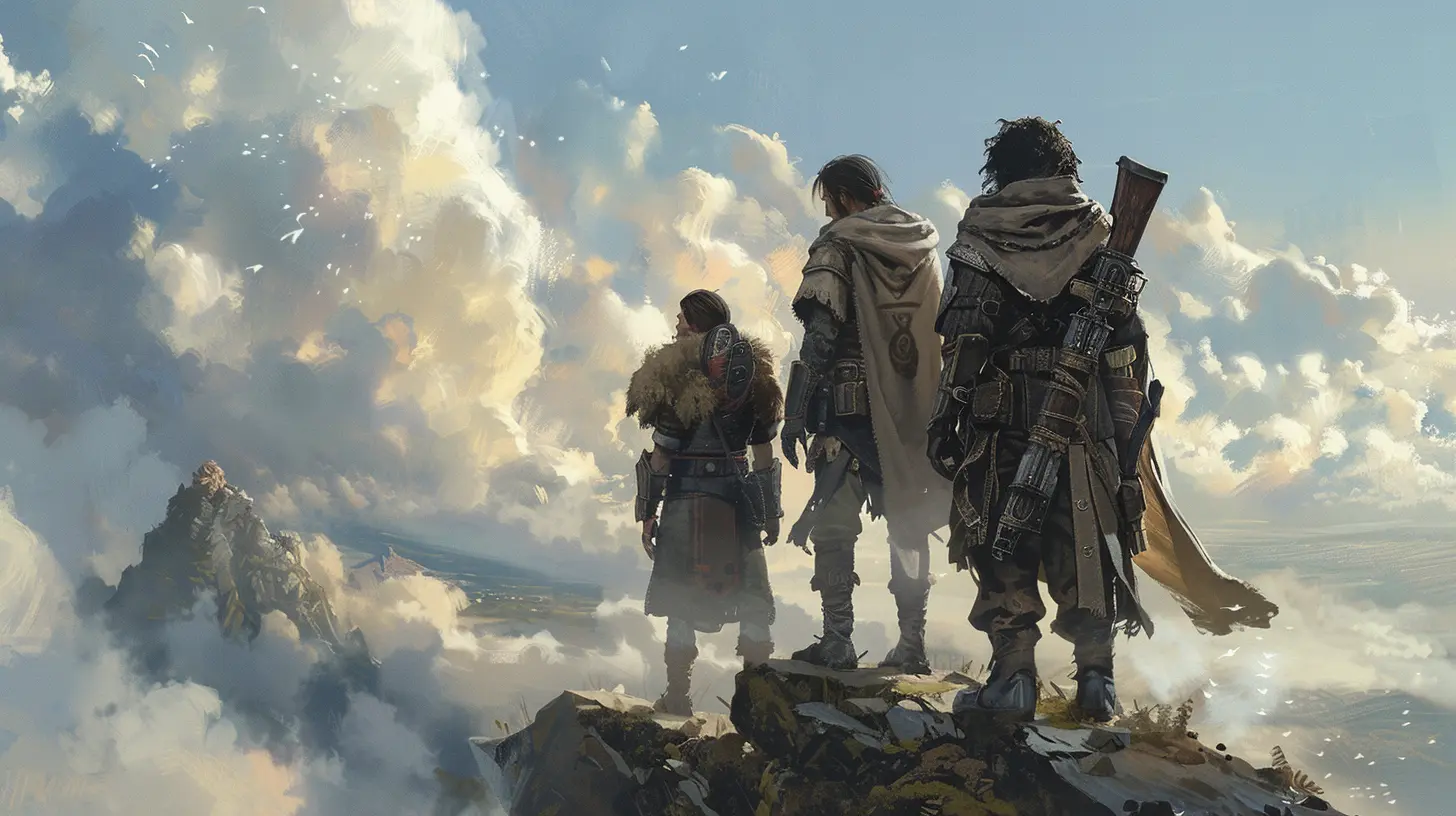
Fresh Gameplay Mechanics
Let’s not ignore this: playing as something other than a humanoid can shake up the mechanics of an RPG in exciting ways. A lot of RPG systems are designed with the assumption that players will walk, talk, fight, and loot like standard humans in a fantasy or sci-fi setting. But when the game makes room for non-human characters, it’s almost guaranteed to tweak those expectations.For instance, let’s say you’re piloting a swarm of miniature robots instead of a single character. Suddenly, combat isn’t about swinging a sword or casting fireballs—it’s about overwhelming enemies with sheer numbers. Or maybe you’re a spectral ghost who can’t pick up physical objects but can pass through walls and possess NPCs. Those unique mechanics don’t just spice up gameplay; they can reshape how you approach challenges altogether.
The best part? Non-human characters often create opportunities for collaborative or strategic play. Imagine being a pack of wolves in a tabletop RPG. Sure, individually you’re not very powerful, but when you act as a group, you’re unstoppable. This kind of thinking brings new layers to both storytelling and teamwork. 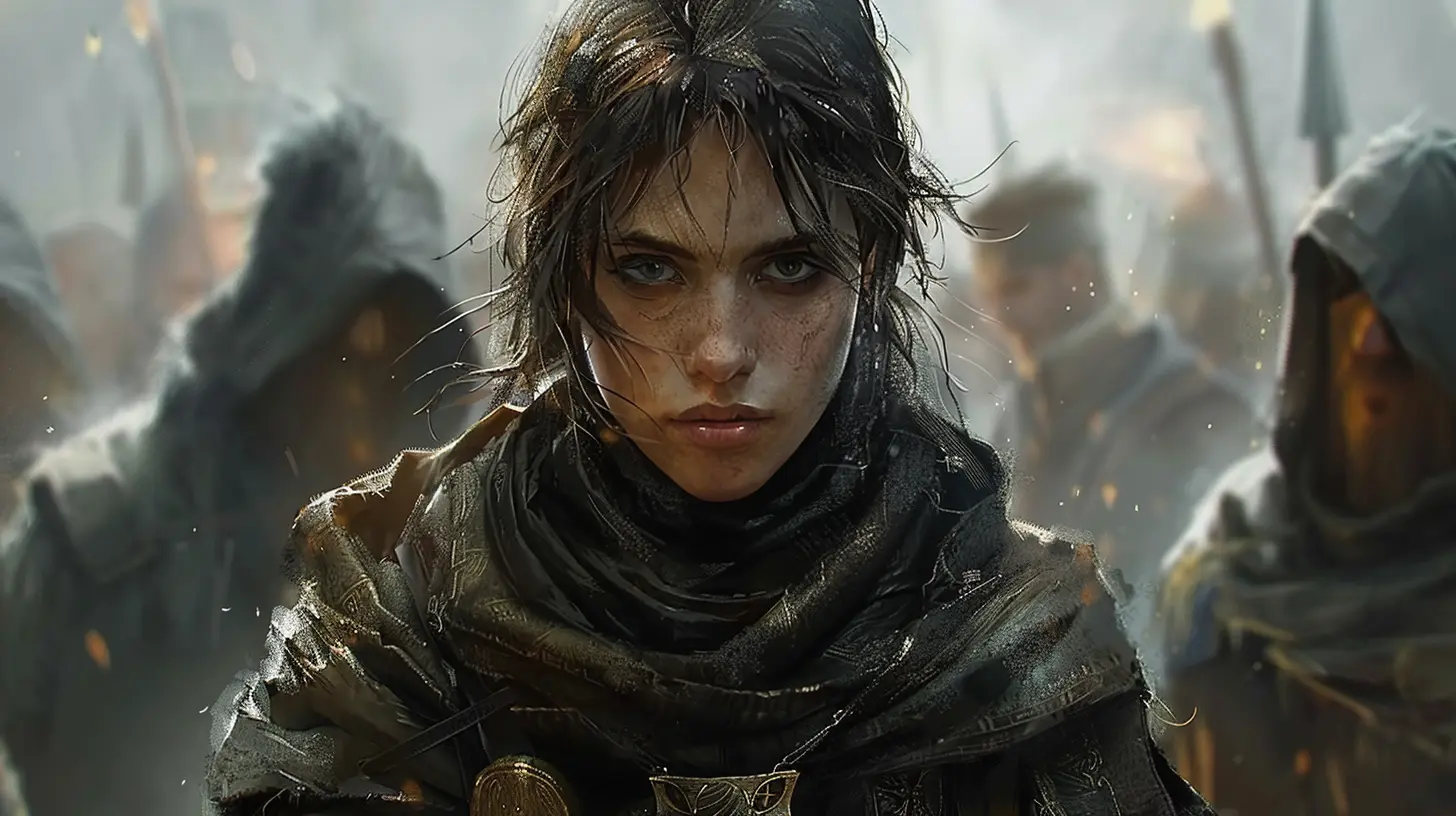
Shattering Stereotypes in Storytelling
Here’s the thing about human-centric stories: they can get repetitive. Don’t get me wrong—there’s nothing bad about a classic tale of love, war, or redemption. But sometimes it feels like we’re recycling the same tropes over and over. Kings, prophecies, chosen ones... you get the idea.Non-human characters, however, have the power to break free of those stale narratives. They allow you to explore stories that don’t rely on traditional human themes. Maybe you’re playing as an alien species whose culture revolves entirely around music. Instead of fighting to save the galaxy, your mission could be to preserve harmony in the universe—literally.
These characters also give creators room to challenge stereotypes in clever ways. Take the trope of the "mindless monster." What if you played a zombie in a post-apocalyptic setting, struggling against your basic hunger for brains while trying to piece together your lost humanity? Suddenly, the monster isn’t so simple anymore.
Unpredictability = Fun
Let’s talk about the fun factor. When you play as a human, you often know what to expect. You have emotions, motivations, strengths, and weaknesses rooted in the familiar. But when you roll up a character that’s not human, the game becomes way less predictable—and that’s a good thing.Non-human characters often come with unique quirks that make things hilarious, thought-provoking, or flat-out bizarre. Imagine playing as a gelatinous cube in a dungeon-crawl campaign. How do you interact with NPCs when you can’t talk and everything you touch dissolves? These kinds of challenges are not only hilarious—they also push you to think outside the box.
The unpredictability extends to how other characters (both NPCs and fellow players) react to you. Being a dragon in a party of adventurers isn’t just fun for its own sake; it adds new layers of tension and comedy to group dynamics. Will the townsfolk trust you? Will your party members treat you differently, knowing you're a walking flamethrower with treasure-hoarding instincts?
A Mirror to Humanity
Here’s the paradox: playing as non-human characters often reveals a lot about what it means to be human. By stepping away from your own worldview, you gain fresh insights into why humans are the way they are.Consider the classic RPG trope of playing as an android. Your character might be programmed for logic and incapable of emotion (at least at first). But as the story progresses, you might start to question the importance of feelings. Are humans stronger because of their emotions—or are they held back by them? These kinds of narratives give players space to reflect on themselves in ways they never expected.
It’s like looking at your life through a funhouse mirror: the reflection isn’t perfect, but it makes you notice things you’d normally overlook.
Final Thoughts: Embrace Your Inner Slime
At the end of the day, RPGs are about stepping into someone else’s story—even if that "someone else" is a tree, a sentient cloud of gas, or an eccentric alien biologist. Non-human characters aren’t just gimmicks; they’re doorways to new ideas, new mechanics, and new ways of thinking.So, the next time you’re building your character for an RPG, why not try something a little less human? You might just end up discovering that stepping outside your comfort zone can make the game—and your perspective on life—that much more interesting.
all images in this post were generated using AI tools
Category:
Role Playing GamesAuthor:

Stephanie Abbott
Discussion
rate this article
5 comments
Lark Carrillo
Who knew a talking mushroom could have such deep existential thoughts? Non-human characters in RPGs bring a delightful twist to storytelling, showing us that wisdom can come from the most unexpected places! Let’s embrace the weird and wonderful—after all, who doesn't want to chat with a wise-cracking squirrel?
April 3, 2025 at 5:14 PM

Stephanie Abbott
Absolutely! Non-human characters enrich storytelling by offering fresh viewpoints and unexpected wisdom, making our adventures even more delightful and thought-provoking. Embracing the quirky adds depth to the narrative!
Meredith McElroy
How do non-human perspectives shape player empathy and storytelling?
April 2, 2025 at 4:35 AM

Stephanie Abbott
Non-human perspectives challenge players to step outside their own experiences, fostering deeper empathy by encouraging them to understand diverse motivations and worldviews. This enriches storytelling by adding complexity and depth, allowing for unique narratives that resonate with broader themes of identity and connection.
Taryn McIntosh
Exploring non-human characters in RPGs opens up a world of unique perspectives and storytelling opportunities! Embracing diversity in characters not only enriches gameplay but also broadens our understanding of different experiences, making every adventure truly unforgettable. Let’s celebrate creativity!
March 26, 2025 at 4:25 PM

Stephanie Abbott
Absolutely! Non-human characters bring fresh viewpoints and diverse narratives, enhancing the richness of RPG storytelling and gameplay. Celebrating this creativity truly elevates our adventures!
Zevonis Evans
This article brilliantly highlights how non-human characters in RPGs challenge our perspectives, fostering empathy and innovative storytelling. They enrich narratives, encouraging players to explore diverse experiences and cultures.
March 22, 2025 at 4:31 PM

Stephanie Abbott
Thank you for your thoughtful comment! I'm glad you found the article highlights on non-human characters enriching for storytelling and empathy.
Cassidy McGovern
This article beautifully highlights how non-human characters enrich RPGs by providing fresh perspectives and deepening storytelling. Embracing diverse viewpoints fosters creativity and empathy—essential elements in gaming and beyond. Great insights!
March 19, 2025 at 5:48 PM

Stephanie Abbott
Thank you for your thoughtful comment! I'm glad you resonate with the idea that non-human characters expand creativity and empathy in RPGs. Your insights are much appreciated!
